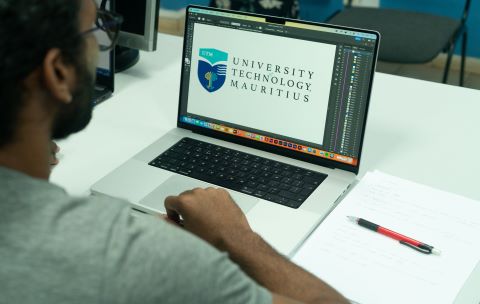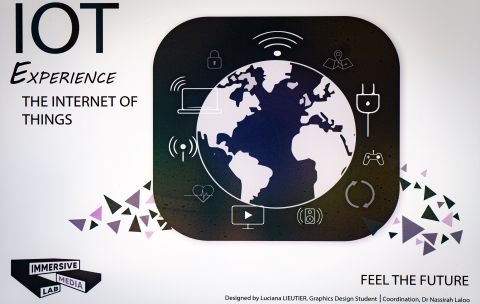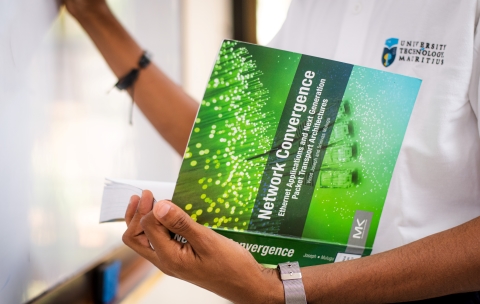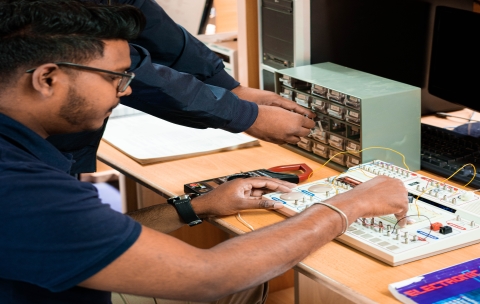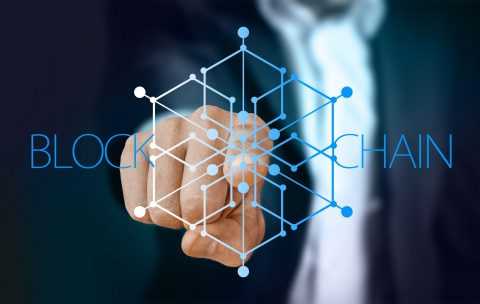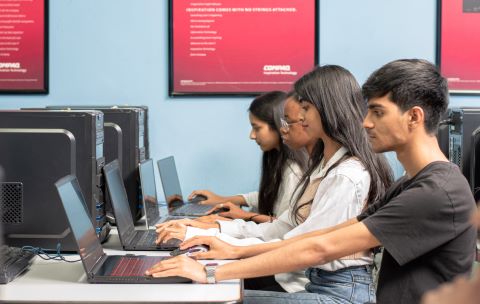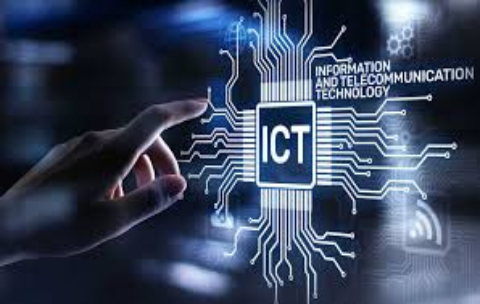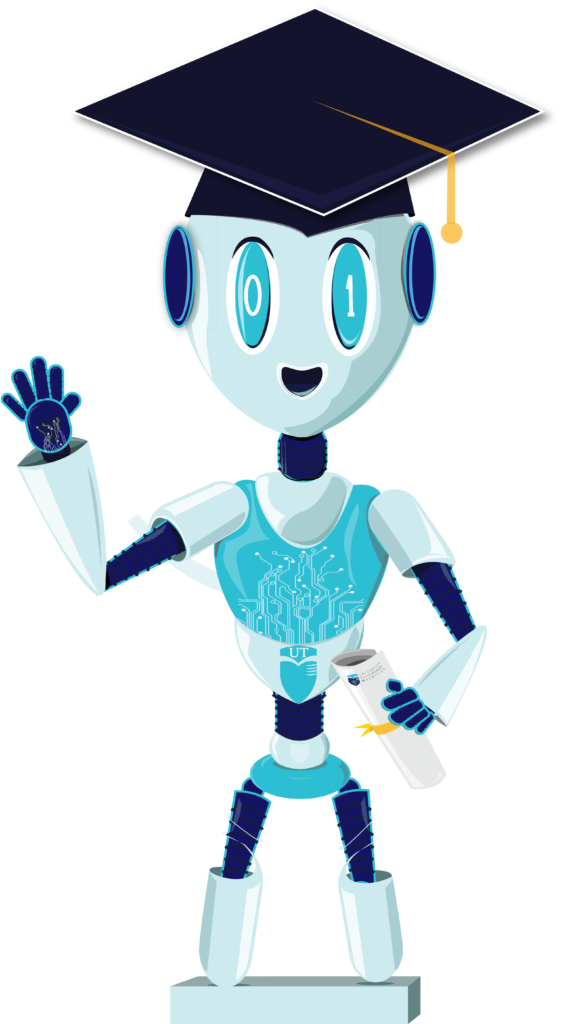Industrial Systems Engineering (ISE)
29/08/2022 2024-04-17 16:22Industrial Systems Engineering (ISE)
School of Innovative Technologies and Engineering (SITE)
Head of Department Message
Head of Department of Industrial Systems Engineering (ISE)

Industry 5.0 will lead to Society 5.0 which shall attempt to balance economic development with resolving societal and environmental problems.
Industry 5.0 promises that organisations will become human-centric and shall make use of systems which are resilient, sustainable, and virtual. Hence, our department has recently embarked on two new programmes in Renewable Energy and Blockchain Technologies and Business Applications to ensure a highly skilled and knowledgeable workforce. We shall continue to rely on our two BEng (Hons) Electronic Engineering and Telecommunication Engineering programmes along with our popular MSc Computer Science with Emerging Technologies.
The Department will endeavour to keep abreast with the latest technological trends and we are planning to develop programmes in fields such as Quantum Computing, Bio-Medical Engineering and Hyper Intelligent Networking fields in the near future.
Our departmental academic staff include two Registered Professional Engineers to support the Washington Accord initiative as well as two Professors to provide an ideal blend of Academia, Research and Industry.
Head of Department

Email:
Departments
Industrial Systems Engineering
- To produce graduates possessing relevant professional skills and engineering
knowledge to make them confident in developing high-quality and optimal solutions
in various application domains under various realistic constraints. - To produce graduates which are able to engage and succeed in their professional
careers through team work, ethical behaviour and effective communication. - To produce graduates which are able to appreciate the importance of life-long
learning through professional development, practical training, and specialized
certifications programmes. - Graduates are expected to practice as registered professional engineer in both
public and private sectors locally, as well as, overseas. - Graduates should also possess the necessary academic acumen to pursue relevant
postgraduate programmes as well as embark in business and/or research careers.
Undergraduate Programmes
BSc (Hons) Intelligent Systems and Robotics
The concept of Industry 4.0 and 5.0 (I4.0/I5.0) refers to …
BSc (Hons) Intelligent Systems and Robotics
What you'll learn
Diploma in Emerging Technologies (with specialization in either Internet of Things or Big Data)
This Diploma in Emerging Technologies programme is designed to give …
Diploma in Emerging Technologies (with specialization in either Internet of Things or Big Data)
What you'll learn
BSc (Hons) Computer Science with Network Security
Programme Information In this era of rapid evolution in science, …
BSc (Hons) Computer Science with Network Security
What you'll learn
BEng (HONS) Telecommunication Engineering
Programme Information: This programme is designed to integrate telecommunication systems …
BEng (HONS) Telecommunication Engineering
What you'll learn
BEng (Hons.) Electronic Engineering
Programme Information Nowadays, it is almost impossible to find a …
BEng (Hons.) Electronic Engineering
What you'll learn
BSc (Hons) Network and Telecommunication Technologies
This BSc (Hons) Network and Telecommunication Technologies programme emphasizes an …
BSc (Hons) Network and Telecommunication Technologies
What you'll learn
Postgraduate Programmes
MSc Blockchain Technologies and Business Applications
Blockchain technologies are geared to create new foundations for the …
MSc Blockchain Technologies and Business Applications
What you'll learn
MSc (Eng) Renewable Energy
Renewable Energy (RE) represents the solution to increasing energy demands …
MSc (Eng) Renewable Energy
What you'll learn
MSc (Eng) Telecommunications Engineering
Telecommunication is one of the most rapidly developing industry sectors …
MSc (Eng) Telecommunications Engineering
What you'll learn
MSc Computer Science with Emerging Technologies
This MSc Computer Science with Emerging Technologies course will equip …
MSc Computer Science with Emerging Technologies
What you'll learn
MSc in Information and Communication Technology with Specialisation in Networking
The MSc programme in Information and Communication Technology (ICT) with …

